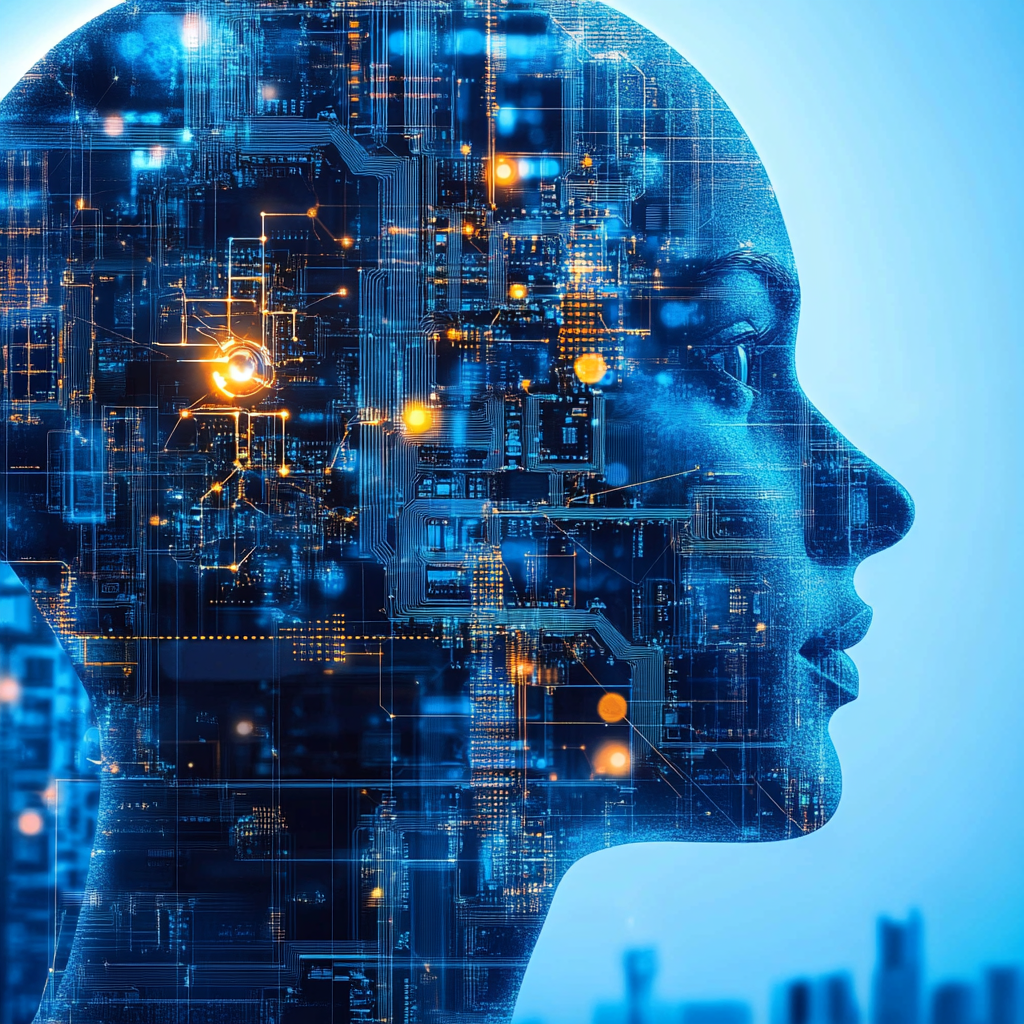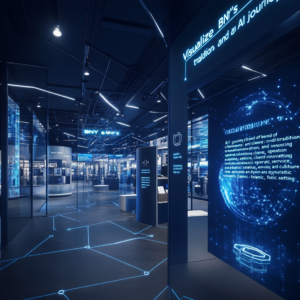
Navigating AI’s Future in India: Balancing Opportunities with Ethical and Economic Challenges According to Economic Survey 2024-25
The Economic Survey 2024-25 has spilled the beans on the intricate dance India is performing with Artificial Intelligence (AI). Picture it like a tantalizing game of chess: one wrong move could topple the king, but the right strategies could lead to a prosperous checkmate. The report ushers in a conversation about the promising prospects of AI, while also waving a cautionary flag about the hurdles that lie ahead.
Now, let’s dive into the meaty discussion swirling around labour displacement. This is the elephant in the room that the survey does not shy away from addressing. As technology moves at breakneck speed, there is a growing anxiety about jobs being swept away like dust on a carpet. Many positions, especially those that are repetitive and unskilled, are set to be sacrificed on the altar of automation. Those who believe that AI is the magic wand that will solve every problem need to re-evaluate. The bulk of the workforce could be left in the lurch, searching for non-existent jobs.
But fear not, the Economic Survey is here to sound the alarm for safety nets! It argues for the need to shield workers from the economic tsunami of AI-induced job loss. Imagine the government and private sector as the heroic duo who team up to re-skill the workforce, transforming them into warriors of the digital world. This isn’t just a spot on the report card; it’s an urgent call to action to prioritize education and reskilling efforts. After all, it’s not about fighting AI; it’s about equipping ourselves to coexist with it.
Now, turn your gaze a little wider. Let’s talk ethics and national sovereignty, shall we? The survey points to the fundamental shifts AI brings to the forefront, raising questions about who controls the AI juggernaut. When the machine starts making the rules, where does human integrity fall? Akshay Garkel, a voice of reason at Grant Thornton Bharat, chimes in, expressing a desire for AI to enhance, rather than dismantle, what it means to be human. We should strive for a scenario where technology supplements our capabilities rather than replaces them. If it can bolster our human potential while respecting our autonomy, then let’s get the ball rolling!
Yet, as we stand on the precipice of this brave new world, glaring infrastructure gaps loom large on the horizon. The survey underscores that without a robust backbone of infrastructure, hope for the widespread adoption of AI may just flutter away like a paper crane in a storm. Stepping up to the plate, India is making strides in digital transformation, but it must also rethink its approach to cybersecurity. Forget traditional passwords. We’re talking identity-based and biometric solutions here. The stakes are high, and the need for a solid defense against cyber threats is imperative for AI to thrive.
Our conversation wouldn’t be complete without acknowledging the tripartite friction needed to harness technology responsibly. The survey screams for collaboration, bringing together the government, academia, and the private sector. This alliance is paramount for a balanced growth framework. It’s like assembling a winning sports team; each player has a unique role to help secure victory. With clear frameworks and ethical guidelines steering the ship, the collective brainpower can guide India through these tumultuous technological waters, ensuring AI integration is fair, meaningful, and inclusive.
But let’s not sugarcoat it—this journey has its bumps. When we look into our crystal ball for the future of AI in India, the picture is discordant. Opportunities glimmer like jewels, but the shadows cast by fears of job loss and infrastructure woes tell a different story. Public reaction has swayed between excitement and cautious optimism, emphasizing the need for sizeable reskilling initiatives. This sentiment echoes across the board: innovation should not come at the expense of worker security. We need policies that champion both technology and the people it impacts.
So, here we stand at the crossroads. The Economic Survey 2024-25 throws open the doors to a complex, challenging, yet exhilarating future with AI. It’s akin to stepping into a vivid landscape, where the potential for growth dances alongside the grave responsibility of navigating ethical use and fostering economic stability.
As India dons its AI armor, forging ahead into uncertain yet mesmerizing territory, it’s imperative to remember that this isn’t just about the technology itself. It’s about how we harness it, integrate it, and shape our society for the better. Questions of humanity, security, and ethics beckon our attention like a lighthouse guiding ships through stormy seas.
To keep your finger on the pulse of AI transformations and other evolving dialogues in this tech-fueled world, consider checking out our resources. Curious minds and industry enthusiasts alike can dive into deeper explorations of this fascinating subject. Want to stay up to date with the latest news on neural networks and automation? Subscribe to our Telegram channel: @ethicadvizor.
After all, the journey of AI is not just a technological saga; it's a pivotal chapter in the story of humanity.

